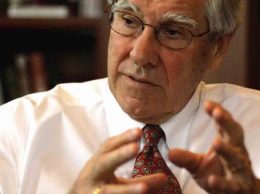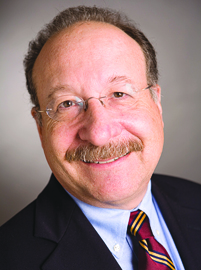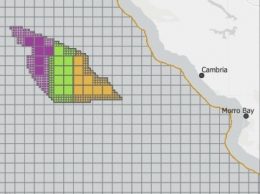Dubroff: Alternative energy on the Central Coast adds to Capps’ legacy
IN THIS ARTICLE
- Columns Topic
- Henry Dubroff Author
By Henry Dubroff Friday, October 9th, 2015
During nearly two decades in Congress representing the Central Coast, Lois Capps (D-Santa Barbara) has been a relentless advocate for alternative energy.
As she prepares to leave the House of Representatives when her term expires – she’s not standing for re-election next year – the change in energy production along the Central Coast is something she can count as part of her legacy.
Large solar fields in the eastern part of San Luis Obispo and Santa Barbara counties have transformed the region into a net generator of electricity from the sun. Santa Maria’s Marian Regional Medical Center has tapped waste energy in the form of methane to power one of the region’s largest hospitals.
And a number of smaller projects from charging stations to industrial solar installations are under way. In the conceptual stage is the first utility-scale wind power production facility in the region.
“Look at all the progress we’ve made,” she said in a phone interview on Oct. 6.
She told me she’s eager to learn more about the array of floating wind turbines proposed for a site 15 miles offshore of Morro Bay. While she said she wants to protect the Central Coast’s vital fisheries, she said she hopes the project will get a fair hearing from environmentalists.
“You can only find out by giving it a try,” she said.
The vision of the 450-foot-tall smokestacks at the now-shut Dynergy power station in Morro Bay being replaced with wind turbines is a powerful metaphor, she said, adding that it could represent the transformation from an “old energy era” to a new path that reduces the use of fossil fuels dramatically.
Finding solutions to the region’s energy future will be the topic of roundtable discussions she’ll be hosting later this fall at UC Santa Barbara and Cal Poly San Luis Obispo. And, showing why she is perennially voted the nicest member of Congress, she said she really wants the roundtables to be focused on solutions.
“You want to say no to offshore drilling, but that’s a negative,” she said. “I would like to be for something. I would like to refine our mission and pick up on things that have promise.”
She said that among the things she’s been proudest of in representing what’s now the 24th Congressional District is the evolution of research from both Cal Poly and UCSB, citing energy companies such as Transphorm, a UCSB spinoff that has pioneered gallium arsenide as a new and more energy efficient base material for semiconductors.
Capps said part of her vision for a concept we’ve called the “Green Coast” is even more innovation from Cal Poly, UCSB and private entrepreneurs. She said there will have to be a “much stronger role for angel funders” who can provide crucial support at the early stages in a company’s formation.
But she didn’t rule out the role of research grants and other federal seed money to help develop promising research. The work going on in the Central Coast “has national scope,” she said, citing an upcoming trip to UCSB Professor John Bowers and his institute’s pioneering research into photonics.
The battles over the speakership and government shutdown threats have taken a toll on Capps, who said that in the wake of John Boehner’s resignation some bills may get done but these will be largely stopgap measures. As a member of the minority in Congress, she has little control over legislation.
“With the speakership hanging and so much time spent trying to repeal the Affordable Care Act, I don’t see a real positive agenda,” she said, adding that “the president is not working through Congress and is trying to do stuff on his own.”
She said the Refugio Oil Spill was a remarkable echo, decades later, from the 1969 spill that launched Santa Barbara into the forefront of the environmental movement.
Capps said she’s spoken to the newly-confirmed head of the federal pipeline administration and has stressed the need for automatic shutoff valves and other safety measures.
“I am very concerned that we are going to do the right thing in terms of the spill and make sure it is not glossed over,” Capps said. “It underscores more and more the importance of renewable energy, that we have the alternative.”
Shortly before our conversation, Bloomberg News reported that for the first time renewables are having enough impact to reduce overall use at U.S. fossil-fueled power stations. Washington, D.C., may be dysfunctional and depressing but, at least on the renewable energy front, progress has been made.
• Reach Editor Henry Dubroff at [email protected].
Related Articles
 Friday, October 14th, 2022
Friday, October 14th, 2022











